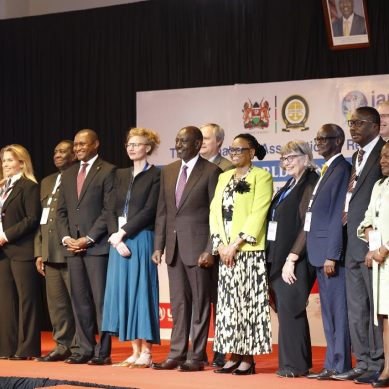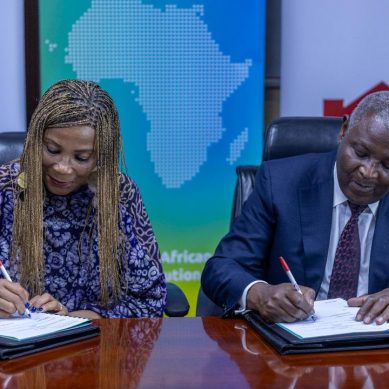
Khaldoon al Mubarak, Manchester City’s long-serving chairman, tends to shy away from the public spotlight. There are occasional in-house interviews to reflect on the club’s successes but seldom does he open himself up to wider questioning.
An exception to that rule came in 2009, a year on from City beginning life under its owners from Abu Dhabi. Khaldoon spoke at length with The Guardian newspaper to outline the long-term plans and ambitions for City, who at that time had gone 41 years without an English men’s league title.
“The UAE (United Arab Emirates) is different from other Arab countries,” said Khaldoon. “People think the Arab world is one but it is not. This (owning Manchester City) is showing the world the true essence of who Abu Dhabi is and what Abu Dhabi is about.”
Such projections, Khaldoon stressed, were an unintended consequence of the takeover that fundamentally altered English football but it is a quote that helps to capture the ongoing commitment after 16 decorated years.
Owning Manchester City carries abundant benefits for Abu Dhabi, even if this is considered a private investment from an owner who has only ever attended two games in 14 years. All those trophies won since Sheikh Mansour bin Zayed Al Nahyan, deputy prime minister of the United Arab Emirates, signed off on a £200 million buy-out have given City supporters the time of their lives and built up a self-sustainable asset that is at home with the elite. Importantly, though, it has also endorsed an oil-rich state that is home to less than four million people.
City, as Khaldoon accepted long ago, had to become a vehicle for something more than just football. A club based 3,500 miles away could help place Abu Dhabi on the map, heightening international relevance and appeal. And few would suggest it has fallen short.
Manchester City’s was a takeover that pushed us towards the very modern term of “sportswashing” but it has yielded more than just reputational improvements in a part of the world where Amnesty International says freedom of expression is unduly restricted.
“Sportswashing is shorthand for something that’s far more complex but there is something new about states owning football clubs,” says Nick McGeehan, director at FairSquare, the human rights group.
“In terms of Abu Dhabi’s reputation, it’s been about normalisation as much as anything. It’s about conveying the messaging that this is a sensible and responsible business partner, somewhere you could go on holiday. It’s almost that Abu Dhabi and its brands become part of the UK.
“In that sense it’s been very effective. At times it’s shone a light on some of the nasty stuff but that’s probably been outweighed by the numerous times they’ve used the club to present a different sense of themselves. It’s a branding vehicle for them.”
The foundation of City Football Group (CFG) in 2013 extends the club’s influence beyond the UK, too. Manchester City are now one of 12 clubs in an operation that has bases in India, Australia, Japan, China and Brazil. Half of them have City bolted on to the end of their name, most notably the Major League Soccer team New York City.
It has brought success that undoubtedly caught Saudi eyes.
Thirteen years after Manchester City had been bought by Sheikh Mansour, Saudi Arabia’s Public Investment Fund (PIF) successfully overcame obstacles to join their geographical next-door neighbours in the Premier League. The £300 million takeover of Newcastle United, patient and protracted, added representatives from a second Gulf state to English football’s top division in 2021.
Saudi’s plans for football go far beyond Newcastle, to hosting the 2034 World Cup and building a domestic league that is home to the stars. Owning a Premier League club, though, has the potential to be more than just a sound long-term financial investment. Manchester City are the all-conquering case in point.
“If we transported back to 2008 and asked most people what they knew of Abu Dhabi, most people in the UK wouldn’t have a clue,” says Simon Chadwick, professor of sport and geopolitical economy at SKEMA Business School in Paris. “Now their knowledge of Abu Dhabi mostly begins and ends with Manchester City.”
Everything has changed in the past 16 years. City were a middling Premier League club in deteriorating health when seeking a buyer in the summer of 2008. The previous season had concluded with a catastrophic 8-1 loss away to Middlesbrough and the final table had both Blackburn Rovers and Portsmouth finishing higher.
Then along came Sheikh Mansour, brother to Abu Dhabi’s ruler Mohammed Bin Zayed (MBZ), to clear the debts of its previous owners and begin a £1.3 billion transformation that would eventually see Manchester City crowned champions of Europe in 2023.
“There’s this cognitive behavioural process called image transfer,” says Chadwick. “Because people think Harry Styles is cool then if I stand next to him they’ll think I am too. Manchester City, by becoming successful, have conferred a similar type of image upon Abu Dhabi.
“Keep in mind what you’ve got in Abu Dhabi. You’ve got the Sorbonne, arguably one of the most prestigious universities in the world, you’ve got Ferrari World, perhaps the most prestigious car brand in the world, you’ve got the Louvre, the most prestigious art gallery in the world.
“The brand proposition of Abu Dhabi is about prestige, status and guaranteeing that if you engage with Abu Dhabi then you’re going to get the best. Manchester City needs to succeed in the context of that.”
City have become a remarkable success story. Their legacy will be shaped by the 115 Premier League charges that still hang over them but they have instilled strategy and professionalism that rivals, like Manchester United, are now attempting to replicate.
Their commercial income streams might be backed by so many companies with links to Abu Dhabi but this is a club that turned over £713 million in its treble-winning season. The most recent Deloitte Football Money League, an annual assessment of Europe’s top clubs, had only Real Madrid generating more.
Forbes valued City as a £4.04 billion asset last year to illustrate that Sheikh Mansour’s total investment in the club has likely trebled but quantifying other benefits is less straightforward.
“Owning Manchester City is associated with success and investment and I think it does change that image of what Abu Dhabi is and what it represents,” says Steve Cockburn, Head of Economic and Social Justice at Amnesty International.
“Manchester City is one of the most extraordinary brands you can get (in) the sport that’s watched and cared about more than any other in the world so it’s a quite incredible investment really.
“The investment funds of these Gulf states have all been used to diversify their domestic economies because the oil will run out. They’re investing in property all over the world and that helps create dependencies diplomatically too. That’s important. The amount of investment in our economy in the UK creates a strategic dependency with the UK government. That feeds into diplomacy, to soft power.”
- The Athletic report








